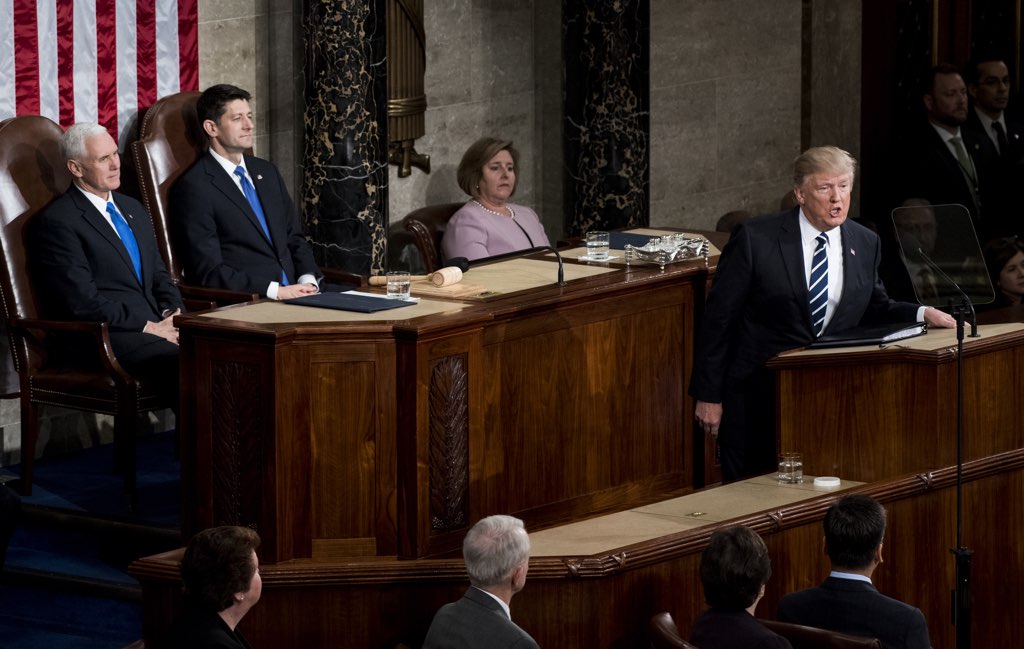Donald Trump became President of the United States on Thursday night, according to CNN’s Fareed Zakaria. Trump, Zakaria said, assumed the nation’s highest public office after ordering two US Navy vessels parked in the eastern Mediterranean Sea to fire a total of 59 subsonic cruise missiles at an air base in Syria, as retaliation for that country’s use of chemical weapons on residents of Idlib.
.@FareedZakaria on Syria strikes: “I think Donald Trump became President of the United States” last night https://t.co/dLipRu6SZu
— New Day (@NewDay) April 7, 2017
If Zakaria’s understanding of presidential succession is correct, Thursday’s strike marks at least the third time in 11 weeks that Trump has taken office. He previously became president on February 28, when during a speech to a joint session of Congress, he led a two-minute standing ovation for the widow of a Navy SEAL killed while carrying out an operation in Yemen on January 29. Trump’s new presidency was noted by Zakaria’s CNN colleague Van Jones.
According to the 20th Amendment to the United States Constitution, presidents—absent the death or incapacitation of the incumbent—are sworn in at noon on January 20 following an election. But if Trump only became president during that February speech, and former President Barack Obama‘s term ended at 11:59 AM on January 20, then by Jones’s own reasoning, did the January 29 mission that resulted in a US commando’s death happened without orders from a commander-in-chief?
It turns out the chain-of-command was not so broken, because Donald Trump also became president at noon January 20, when he was sworn in before a large assembly of people on the National Mall. (The National Park Service does not give crowd-size estimates, but unofficial guesses ranged from 300,000 to largest human gathering in Washington’s history.)
But Zakaria’s proclamation on Friday morning could create more constitutional problems for the again-new president. If the Syria raid does indeed mark the start of Trump’s third term, that could strain Section 1 of 22nd Amendment, which states that “No person shall be elected to the office of the President more than twice.” There’s an obvious out for Trump in that the United States has not conducted a general election since last November 8 and is not scheduled to hold another presidential contest until November 3, 2020.
Still, if last night did mark the beginning of Donald Trump’s third presidency, it’s worth noting some of the statistical quirks of his first two terms. Both will go down as the least-liked presidencies since modern polling began, according to Gallup, with an average daily approval rating of just 41 percent through April 2. And while presidential terms of 39 days and 37 days, respectively, are among the shortest in US history, William Henry Harrison retains his record as the President with the shortest time in office.
How many more times will Donald Trump become president? His first two presidencies lasted an average of 38 days, so I’ll set the over/under for when this one ends at Sunday, May 14. There’s a simpler way around this, though: TV yakkers could stop repeating that “Donald Trump became president” just because he performed the duties of the job he assumed on January 20.



















